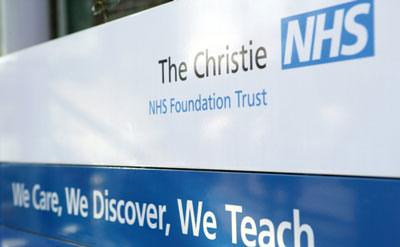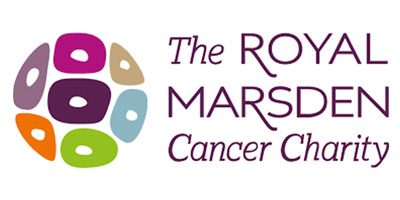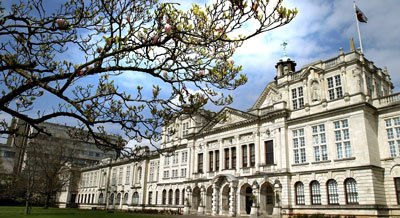22nd Feb - 22nd May 2018
International Fellowship in Robotic Colorectal Surgery, EARCS training programme, Champalimaud Foundation, Portugal
Prof. Amjad Parvaiz

I was privileged to be one of the initial trainees on the fellowship programme, run by the EARCS. The programme involved anatomical modules on colonic and rectal anatomy. Technical modules included the learning of the Da Vinci system. Case Observations were undertaken both at the Champalimaud clinic in Lisbon and other centers in England. Lectures, which covered thorough knowledge of pelvic anatomy and the theory behind Total Mesorectal Excision (TME) surgery, were attended. Lecture-based teachings as well as live case observations were undertaken.
System and Dissection Training Course (two consecutive days) was done previously in Switzerland. Console/System Training Course was done to gain insight and competence with the system and console. This was followed by the porcine training model and cadaveric training. Procedure Specific Cadaveric Course was done in Geneva, Switzerland.
A good volume of robotic colonic and complex rectal cancer operations were observed and assisted. The detailed log will be provided on request. Assessments with GAS forms and submission of videos are pending prior to sign off.
I was a part of the faculty for the Laparoscopic training programme in Portugal and was involved in setting up the laparoscopic colo-rectal training programme for the government of Serbia.
I was a part of two specialty conferences Angels and Demons in Rectal Cancer: Champalimaud Foundation, Lisbon, held on 22 – 23rd Feb 2018 & RSM summer overseas meeting / Champalimaud Centre, held on 17 - 18th May 2018.
A consensus statement following the rectal cancer meeting is written up and is pending submission.
Oct 16 – Mar 17
The Christie Colorectal, Peritoneal and Pelvic Oncology fellowship, Manchester, UK : ( Oct 16 – Mar 17) : Surgical Oncology centre, The Christie NHS Foundation Trust, Manchester, UK
Mr Omar Aziz, Mr Chellaiah Selvasekar & Prof. Sarah O’Dwyer

Summary
The Christie is one of the largest cancer treatment centres in Europe. It is an international leader in cancer research and development and home to the Paterson Institute for Cancer Research. The fellowship at the Christie hospital involves advanced colorectal surgery (locally advanced and recurrent colorectal cancers). The main work is around Cytoreductive surgery for pseudo-myxoma Peritonei and peritoneal carcinomatosis of colo-rectal origin. Christie is also the referral centre of anal cancers and Sarcomas. The key learning happens from the complex and rare cancer Multi-disciplinary team (MDT) / Tumour board meetings. This includes Complex pelvic cancers, Peritoneal tumours, Anal cancers, Neuro-endocrine Tumours (NET), Sarcoma and Complex pathology MDTs. There is an added benefit with Minimally invasive surgery (Laparoscopy and Robotics). As a part of the on-call, we were exposed to Colorectal, Urological, Gynaecological, Head / neck and plastic surgical patients.
Quality improvement programme in Surgery (QIPS)
A Q4 Mortality and Morbidity meeting was presented by me. I was involved in data entry, analysis, summary, comparison with the previous quarters and previous 4 years. This was looked in comparison to the American NSQIP database and literature reviewed. Learning points were generated, minutes of the presentation were sent and the data added to the database.
Research: Life after CRS & HIPEC – A qualitative study
This is an exploratory psycho-oncological study. I am the primary researcher for this PROMS project. Involves a qualitative methodology with patient focus groups. It is in the process of being badged as an NIHR project under the leadership of Prof. Renehan.
Apr 15 – Oct 16
St Marks Hospital, London Fellowship : Resident Surgical Officer – St. Mark’s hospital, London North West Healthcare NHS Trust, London, UK

Summary
St. Mark's Hospital is the only hospital in the world to specialise entirely in intestinal and colorectal medicine and is a national and international referral centre for intestinal and colorectal disorders. Wolfson centre for endoscopy is one of only 14 worldwide, to be recognised as a centre of excellence by the World Organisation of Digestive Endoscopy. Born in 1835, Some of the good and the great of colorectal surgery associated with St. Marksare Frederick Salmon, Francis Avery-Jones, Lockhart-Mummery, Cuthbert Dukes, David Henry Goodsall and Sir Alan Parks. In addition to fistula surgery, Goodsall’s rule, ‘Dukes’ staging system, Polyposis, APC gene, Ileo-anal pouch was invented here. The living legends include Prof. John Nicholls, John Northover, Robin Phillips & Susan Clark
The fellowship period at St. Marks was a milestone both on professional and personal progression. I spent eighteen months very productively. I rotated through all the placements involving complex proctology, Intestinal failure, pelvic floor, polyposis, IBD, cancers (complex locally advanced and recurrent cancers) and exenterational work. The work included both minimally (Laparoscopy / SILS) and maximally invasive (Pelvic exenterations / sacrectomies) approaches. I also gained exposure and experience in newer techniques of VAAFT, SILS and TAMIS.
I undertook outpatient clinics, dealing with 2ww new referrals, follow ups as well as complex tertiary referrals. The summary of my experience includes a total of 2140 outpatient reviews & 1003 operative procedures including 157 endoscopies and 67 Ano-rectal physiology measurements. The specialist skills gained include endo-anal USS, ARP and pelvic floor skills including awareness about bio-feedback programmes. Pelvic floor clinics were challenging in that we have to deal with both organic and functional aspects of the patients. The MDT meetings (Polyp, IBD, Pelvic floor, Cancer, Complex cancer, IF and radiology) were a huge learning opportunity, especially given that the fellows are responsible for smooth running of MDTs involving presentation of the cases to documentation. Joint clinics with the physicians help in dealing with functional and medical complexities. Every aspect of the Patient journey in the peri-operative process is taken care of. This involve checking on the pre-operative clerking, bloods, HDU / ITU bed, consenting, operating, post-operative care and discharge with follow up planning. The case mix is rich with Complex proctology, pelvic floor, inflammatory bowel disease, Intestinal failure, Cancer and complex cancer patients. The joy of the job is you get to see the most complex cases and get involved. There is opportunity to develop skills involving laparoscopic, open and advanced exenterative surgery.
I was actively involved in Health outcomes research, in addition to secondary research undertaking systematic reviews. Thrombo-prophylaxis audit was undertaken, thereby bringing change to clinical practice. Evaluating clinical performance was done in the Clinical governance set up and I have been a part of process with Mortality and Morbidity audit and presentations. Two grand round presentations were made on Decision making in cancer surgery and Thrombo-prophylaxis. I secured a grant of 2000 GBP for the research study from St. Mark’s foundation. Presentations and publication on precision onco-surgery was achieved. The work was nominated for the SARS prize presentation and published in the Annals of the college. A book on Decision making in surgery and cancer care was published during the same period. I have been an invited speaker for a number of international meetings in Bangalore and Mumbai. I visited CMC Vellore, as a part of ASGBI / BJS Overseas Surgical Fellowship. Attended a number of educational courses and also was active in teaching for the FRCS (Christie & St. Marks) and post graduate teaching term for the visiting clinicians to St. Marks. I have been Training; Teaching and supporting juniors on the floor, in addition to taking part in post graduate teaching programme under the St Marks Academic Institute. I have been invited as a part of the faculty for the instructional course in colo-proctology for the ACRSI (India). I have progressed with my endoscopy skills and undertook a number of endoscopy courses including TTT colonoscopy trainers to become a colonoscopy trainer. I was an invited speaker at the joint meeting of the ISUCRS, ACRSI & ISPFD held in Mumbai. I also attended a number of educational meetings including the St. Marks colo-rectal Frontiers as a part of CME. I have been nominated as an examiner for the EBSQ (Europe) examinations in colo-proctology.
On the administrative front, my responsibilities included attending to the work generated from the services, checking on the investigations, arranging follow ups and checking on the discharge summaries. Operative work generated from the clinics are booked on the waiting list, planned & executed in conjunction with the senior colleagues. Anaesthetic input is sought on complex patients very early on in the process. Active participation is undertaken in maintaining the operative diaries. Dealing with complaints has taught me the importance of understanding the patient expectations, risk communication and being transparent. I was a part of the interview panel for appointments of the members of the junior team.
I was active on the social front with organisation of social events as a part of team building exercise. I also took part in the St.Marks day participating in the annual show. I was instrumental in facilitating the initial foundational steps towards St. Mark’s to go international to Bangalore, India. On a personal front, I believe I am a better person, speak less, listen more, work productively and am more effective and efficient.
Quality improvement programme in Surgery (QIPS)
Audit on the use of post-operative thrombo-prophylaxis in addition to review of literature and presentation of the same. I was active in the monthly Mortality and Morbidity meetings and was involved in preparation of the same.
Research
Life after pelvic exenteration – A qualitative study: This is an exploratory psycho-oncological study. I am helping out a co-researcher for this PROMS project. Involves a qualitative methodology with patient focus groups. I was also involved in the database entry for the TATME procedures.
Feb 16 – Apr 16.
The Royal Marsden Fellowship: Minimally invasive (Laparoscopy / Robotic) & Exenterative surgery, Surgical oncology centre, The Royal Marsden NHS Foundation Trust.
Prof. Tekkis & Mr S Rasheed

Summary
The Royal Marsden was the first hospital in the world dedicated to the study and treatment of cancer. It was founded as the Free Cancer Hospital in 1851. I was exposed to Minimally invasive colorectal surgery including Laparoscopy and Robotics. I had the opportunity to train on the robotic simulator and clock training hours. In addition, I gained exposure / experience in exenterational surgery.
Specialty Higher Surgical Training
General Surgery/ Trauma & Colorectal (North / South East Thames Circuit, London deanery, UK)
Laparoscopic trainee
The STEPS Laparoscopic colorectal foundation course, RAIES, Colchester (Ethicon Endo surgery), Spring 2012
6th Aug 2008 – 5th Oct 2010.
Speciality Surgical Trainee (Welsh deanery, Cardiff, UK) Laparoscopic Trainee:Welsh Laparoscopic Colorectal Training Scheme Jan 2010, Cardiff University: (LAPCO) National Training Programme for Laparoscopic Colorectal Surgery







